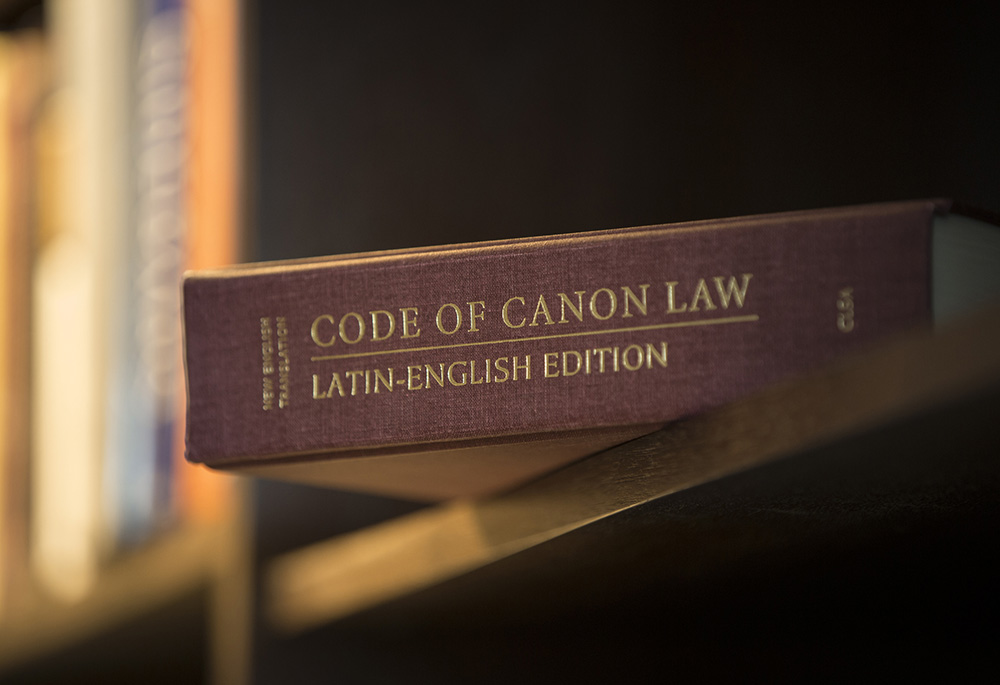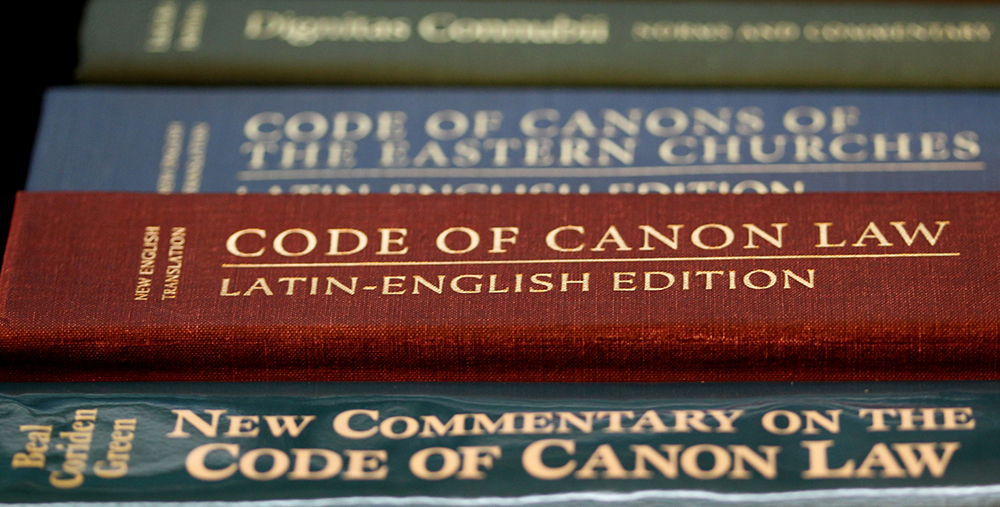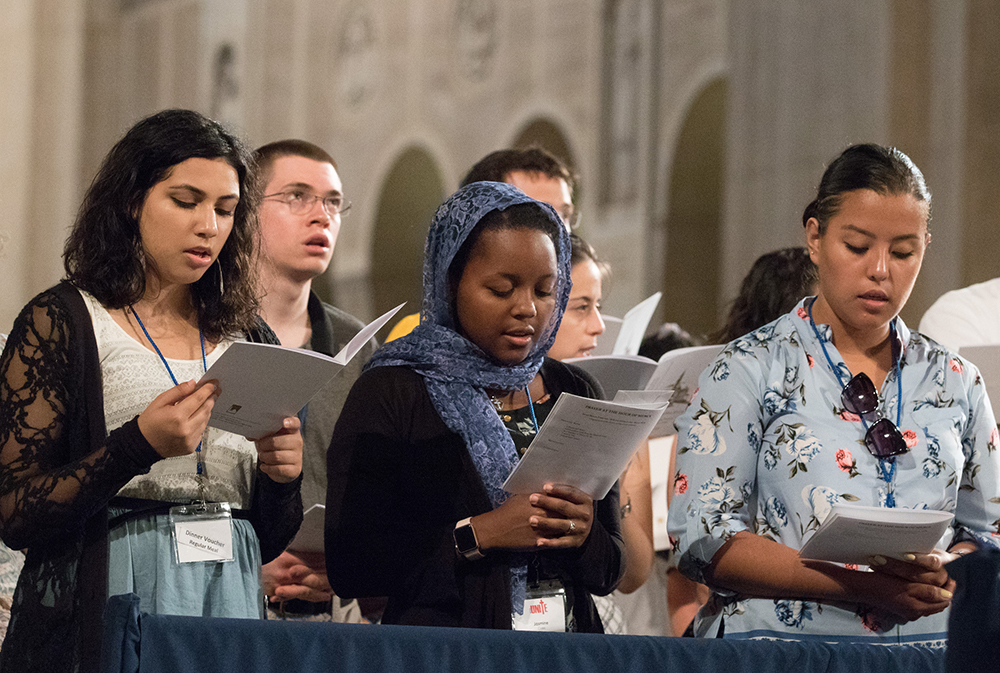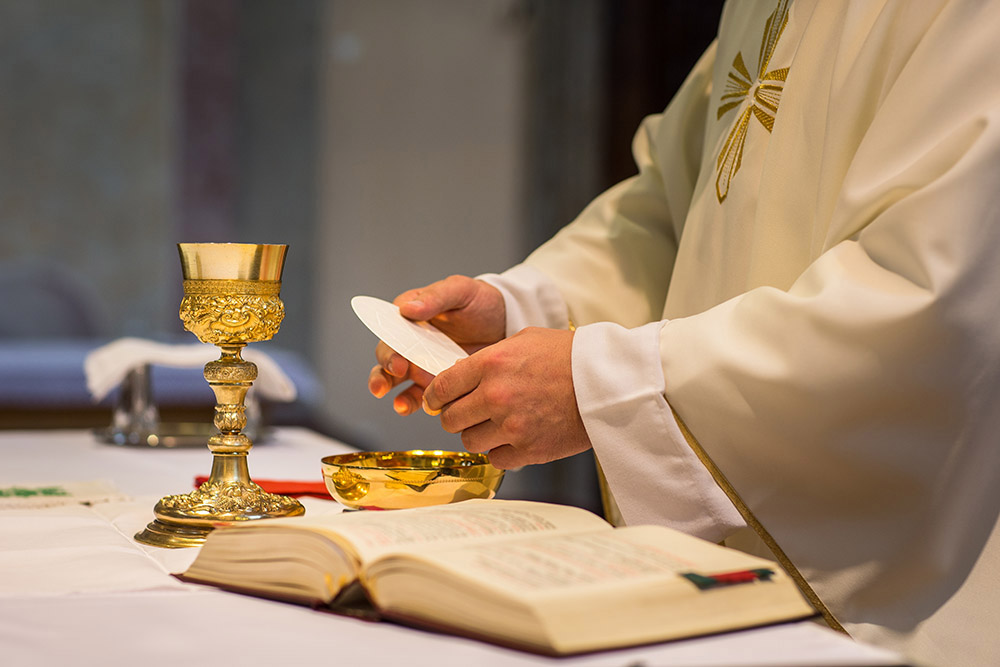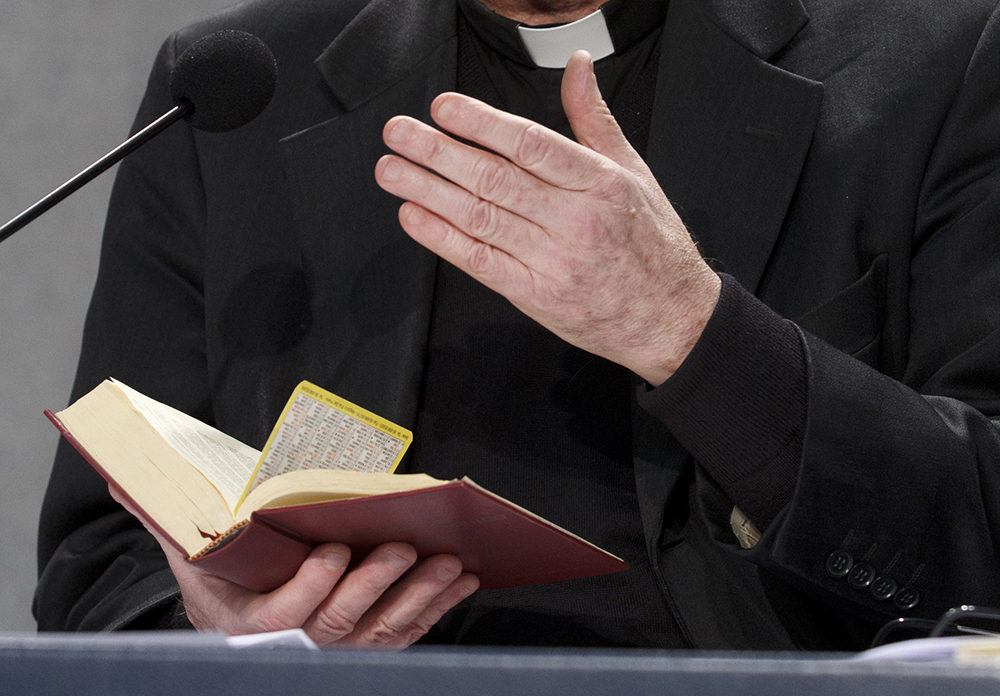Most Catholics know that excommunication has played an important role in ecclesiastical life since ancient times. Many also assume that this controversial procedure was relegated to the history books after the Second Vatican Council. But this assumption is wrong.
Excommunication remains an important part of canon law. In fact, there are signs that in the years to come it will play a larger role in Church life than we’ve been accustomed to seeing. To understand why, let’s look at three key questions frequently raised about excommunication.
- Is excommunication the most severe penalty that the Church can apply, or is it a medicinal remedy intended to bring about personal repentance and conversion?
- Is excommunication imposed in response to certain serious violations of canon law, or is it a consequence of mortal sins as determined by moral theology?
- Is there a master list of actions for which one can be excommunicated, or is each bishop or priest allowed to formulate his own?
The answers to these three questions can help us understand better what excommunication means today and what it might mean tomorrow. Let’s see how.
A Medicinal Remedy
Admittedly the first question is sort of a trick question. The answer to whether excommunication is the most severe penalty the Church has, or whether it is a medicinal response intended to bring about personal repentance, is that excommunication is both. But because this double character of excommunication is precisely what so many people misunderstand about it, let’s talk more about it.
On the one hand, anyone who is excommunicated has ruptured the bonds of communion that should bind each believer to the community of the faithful. Excommunication blocks a person’s right to receive the sacraments and sacramentals, and it prohibits him or her from exercising leadership roles in the Church. Despite the bravado with which some excommunicated persons express their disdain for the penalty, there’s nothing pleasant about these kinds of consequences, and excommunicated people know that. History knows it, too.
At the same time, though, the Catholic Church makes it clear that excommunication is imposed with the express goal of motivating the person to cease the behavior that resulted in the excommunication in the first place.
Put another way, the Church is as loathe to impose excommunication as she is eager to lift it. Indeed, once an excommunicated person has a change of heart (known canonically as “withdrawal from contumacy”), he or she has the right to a prompt reconciliation with the Church and a speedy readmission to her sacramental life.
And why not? The excommunication fulfilled its purpose; it brought an errant sheep back to the fold. If someone remains in a state of excommunication for a long time, you can be sure it is because he or she, sadly, wants it that way, and not because Church officials are being vindictive.
Violation of Law or Immorality?
The question about whether excommunication should be viewed as a penalty for violating canon law or as a consequence of immoral behavior is not tricky, it’s downright tough. This is because excommunication operates precisely where law and morality come into the closest contact.
It’s a well-established principle that not every immoral action can or even should be made a crime. Therefore (notwithstanding some odd cases we might find in the yellowing pages of Church history), excommunication today is imposed only for actions that are, first, seriously sinful in themselves and, second, unable to be adequately addressed in any other way.
Before the canonical penalty of excommunication will be imposed, it must be clear that a person has offended against an important moral and doctrinal value. That explains why today we usually hear about excommunication only in regard to major public issues such as, say, heresy, abortion or faking the sacraments.
Even so, besides the requirement that the action itself must be seriously wrong for excommunication to be possible, the offense must also be one for which the Church sees no other adequate response except a canonical penalty.
Thus, even though, for example, embezzlement of Church property or adultery are serious wrongs (and need to be brought promptly to sacramental confession), the Church has other ways of responding publicly to them. For example, she may call in civil authorities for embezzlement cases or reiterate Church teaching on matrimonial morals and adultery. She does not resort first to the penalty of excommunication when faced with these sorts of serious wrongs. This makes good sense.
Unfortunately, though, some people point to the lack of excommunications for, say, anti-papal diatribes or even clergy sexual abuse of children and conclude that the Church does not take such offenses seriously. Such an accusation is unfair.
If the Church thinks that the most effective response to these wrongs is excommunication, she will take the steps necessary to impose it. But if there seems to be another way of dealing with them, she will try that first.
Experience, as always, is a good guide here, and certainly the list of excommunicable offenses has changed over time. Thus the list could change again, but as that point really brings us to our last question, let’s turn to it now.
A Master List?
For the first decade after the current Code of Canon Law took effect, the answer to our last question was rather clear: All excommunications could be found listed in the Code of Canon Law. It was, moreover, a rather short list.
But beginning in the 1990s, a few diocesan bishops began turning to excommunication as one way, among others, to respond to what they saw as serious affronts to the Faith in their dioceses.
Pope John Paul II enacted a special excommunication outside of the Code of Canon Law against those who would violate the secrecy of a papal conclave. And in just the last few years, the Congregation for the Doctrine of the Faith used its authority to apply legitimately an excommunication in some cases of attempted women’s “ordinations,” even though that penalty for the simulated conferral of holy orders is not expressly contained in the 1983 Code.
We can see, of course, that these more recent excommunications have been implemented only by those at the highest levels of diocesan or universal Church leadership. Thus if we hear of a parish priest threatening or imposing excommunications on his own authority, something somewhere is wrong.
Moreover, even though these examples seem few in number, they are enough to indicate that excommunication is an evolving institution that can and will be used in response to more serious threats against the teachings, life and mission of the Church.
The distinctions highlighted in answering these three questions should go a long way toward minimizing the current confusion about excommunication.
Dr. Edward Peters teaches canon law at Sacred Heart Major Seminary in Detroit. He is the author of “Excommunication and the Catholic Church”(Ascension Press, 2006). Dr. Peters’ canon law website and blog can be accessed at www.canonlaw.info.

